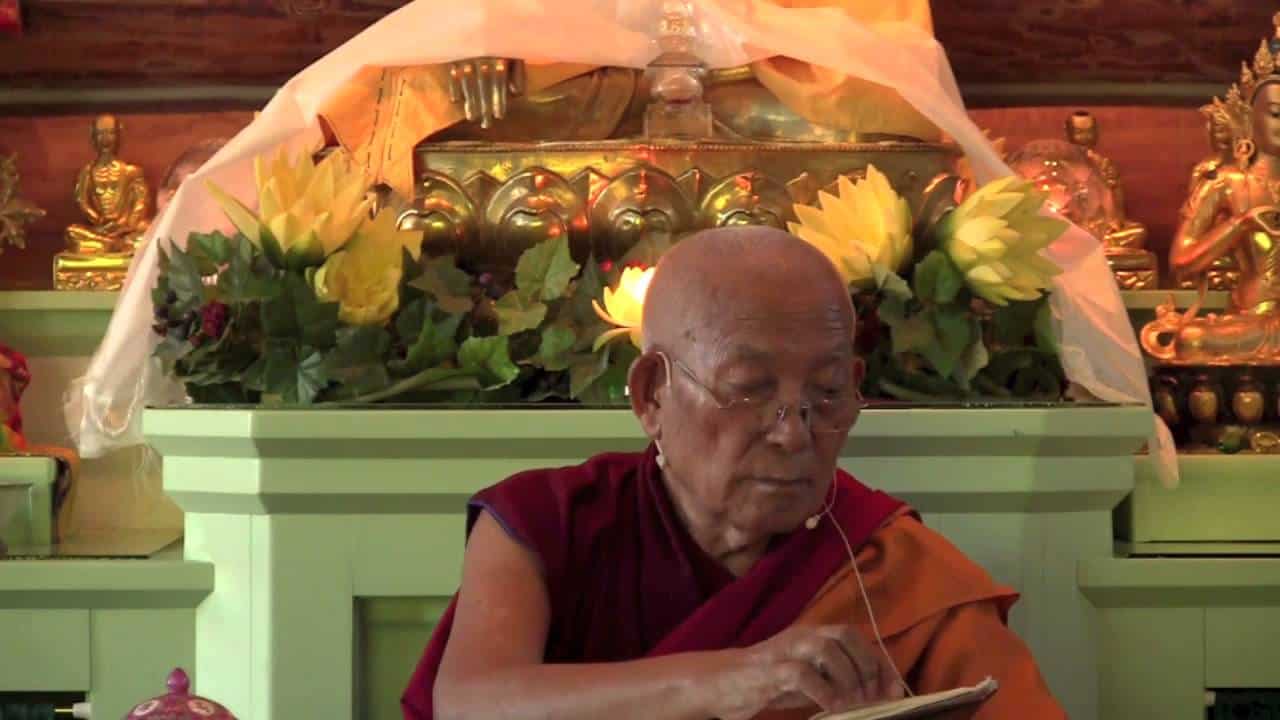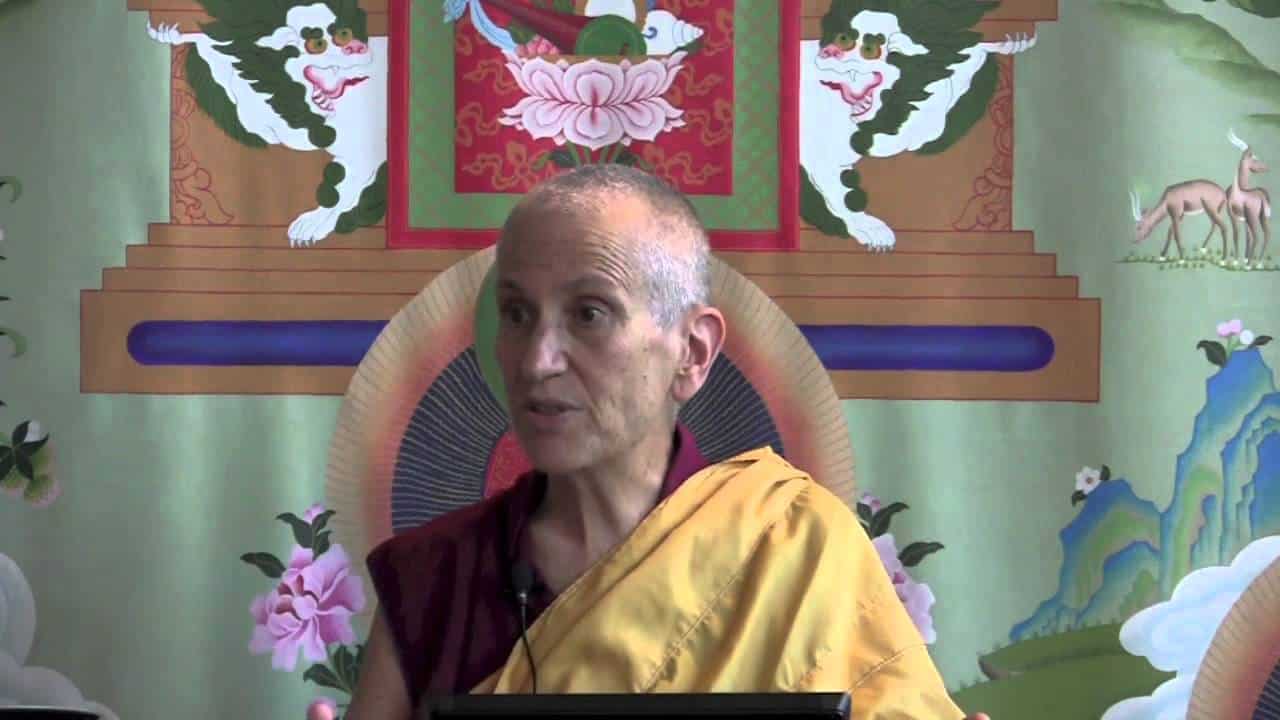Chapter 8: Verses 185-200
Part of a series of teachings on Aryadeva's 400 Stanzas on the Middle Way given on an annual basis by Geshe Yeshe Thabkhe from 2013-2017.
- Giving up strong attachment to one’s own views
- Attaining liberation is impossible without renunciation of cyclic existence
- Appropriateness of striving for liberation because of great disadvantages of cyclic existence
- The importance of leading the students by gradual stages of the path according to their capacity
- Liberation from cyclic existence is attained by understanding that all phenomena are empty of inherent existence
- Why we need to both create merit and gain wisdom
- Why emptiness should not be taught to the unreceptive
- Necessity of teaching emptiness through various approaches
- Familiarization with the meaning of emptiness leads to liberation from cyclic existence
- Why some do not gain release although release is gained by understanding emptiness
- Disturbing emotions can certainly be eliminated
- Birth in cyclic existence is beginingless but not endless
Geshe Yeshe Thabkhe
Geshe Yeshe Thabkhe was born in 1930 in Lhokha, Central Tibet and became a monk at the age of 13. After completing his studies at Drepung Loseling Monastery in 1969, he was awarded Geshe Lharampa, the highest degree in the Geluk School of Tibetan Buddhism. He is an emeritus professor at the Central Institute of Higher Tibetan Studies and an eminent scholar of both Madhyamaka and Indian Buddhist studies. His works include Hindi translations of The Essence of Good Explanation of Definitive and Interpretable Meanings by Lama Tsongkhapa and Kamalasila's commentary on the Rice Seedling Sutra. His own commentary, The Rice Seedling Sutra: Buddha’s Teachings on Dependent Arising, was translated into English by Joshua and Diana Cutler and published by Wisdom Publications. Geshela has facilitated many research works, such as a complete translation of Tsongkhapa’s The Great Treatise on the Stages of the Path to Enlightenment, a major project undertaken by the Tibetan Buddhist Learning Center in New Jersey where he teaches regularly.


